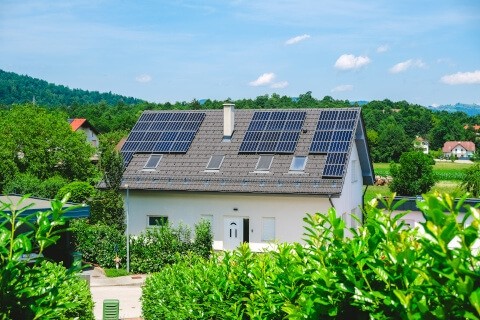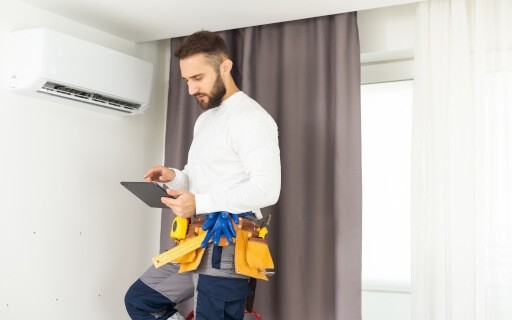
Being a landlord comes with many responsibilities, many of which involve property maintenance and renovations. Renovating a rental property every 15-20 years is the best way to maintain your unit’s upkeep and longevity. However, this can be tricky if your rental is occupied. If renovations disrupt residents, they might break their lease or, even worse, take you to small claims court.
With the right property management techniques and tools, you can avoid disruptive renovations and take the appropriate steps to upgrade your rental property. Read below for the ultimate guide on renovating an occupied rental property.
Renters’ Rights During Renovation
Although renovation regulations vary by state, there are some general rules every landlord should know. If a renter claims they have been inconvenienced or displaced due to home renovations, it could violate the lease.
It’s important to remember that landlords must protect the renter’s privacy and right to quiet enjoyment. If you violate a renter’s right to quiet enjoyment, you could be forced to refund rent or pay for damages that exceed the rent. For example, if you enter a unit to begin renovations without prior notice, a renter could claim you violated their privacy rights and request monetary compensation.
While residents aren’t allowed to pause rent payments because of renovation projects, they can request a rent reduction. This is quite common in instances where renovations block off certain parts of a unit. For example, if a room is blocked off, a renter could ask for reduced rent since they would no longer have access to the entire property. Rent reductions are considered a type of rent concession, which landlords commonly use to incentivize renters to renew their lease and maintain good renter relationships.
As a landlord, you’re not legally obligated to offer rent concessions. However, they can be helpful for retaining renters during rental renovations. Without some form of incentive, you risk losing residents or harming your professional reputation. In addition to rent reduction, you might also consider offering some of the following rent concessions:
- Waived fees, like pet expenses
- New home décor, appliances, or upgrades
- Free or reduced internet or utility costs
- Free use of on-site amenities like parking, laundry, or storage units
- Clearance to personalize the rental property, like painting the walls
While rent concessions can soften the blow of home renovations, they are not completely foolproof for financial protection. If your renter has evidence of financial loss from renovations, they might request compensation. For example, if construction work damages your renter’s personal property, they might request that you pay for repairs or replacements.
How to Renovate During a Lease
For most landlords, renovating an occupied rental property is not ideal. Instead, most prefer to complete upgrades during a planned vacancy. Renovating your property while it’s vacant ensures no disruption of renters’ privacy and quiet enjoyment. When you take this route, you’ll also have the flexibility to complete renovations at your own pace. Without a renter’s schedule to consider, you can hire contractors as you please and expedite any rental renovations if needed.
Unfortunately, you won’t always have complete control over scheduling home renovations. There are instances where you won’t have the option to delay renovations until a planned vacancy. In this case, you’ll need to do your best to communicate with and accommodate your renter. Some landlords will offer to pay for renters to temporarily relocate by placing them in a nearby hotel or another unit. However, renters are not always eager to pick up and leave. In the case that they stay in the rental property, it’s your job to communicate and manage renovations with minimal disruption.
Here are some tips to help you renovate a rental property while it is occupied:
- Meet with the resident and explain the extent of the rental home renovations (if you can, walk through the unit and point out where the construction will occur).
- Communicate to the residents that they might encounter occasional noises, odors, and general inconveniences.
- Go over your plan to protect the health and personal property of the renter.
- Offer rent concessions or negotiate an agreement, if applicable.
- Answer and resolve questions or concerns about the renovation process.
- Create a schedule with the renter and book contractors accordingly.
- Communicate with the renter regularly and provide updates on progress or changes.
- Always send a notice of entry 24 hours before entering the unit.
- Always send a notice of renovation before beginning construction work.
- Be prepared to compensate the renter if any damage is caused by construction work.
- Work with contractors to ensure renovations remain on schedule and as unobstructive as possible by using incentives like a payment plan.
Benefits of Renovating Rental Properties
When it comes to renovating rental properties, it’s all about weighing risk and reward. While renovations pose the risk of vacancies and legal repercussions, they also reap many long-term benefits for landlords.
Increase renter appeal
By regularly maintaining and updating your property, you will appeal more to today’s modern renters. In February 2024, Forbes Advisor reported that 45% of renters would like their rental to be newly built or renovated. As a landlord, regularly maintaining and renovating your property will help you better target today’s market and increase your applicant pool. Forgoing necessary upgrades could make it more difficult to attract potential residents in the future.
Boosts property value
Renovations almost always guarantee a higher property value. For you, the landlord, this means increasing your rental income and increasing your rental’s longevity. Though you might incur some steep upfront costs, renovations usually reap a strong return on investment.
Lower utility costs
Many home renovations are geared toward stronger energy efficiency. Whether upgrading doors and windows or switching out kitchen appliances for more eco-friendly models, renovations can reduce your home’s energy usage and lessen monthly utility costs. Additionally, eco-friendly features could be a huge selling point for your rental. According to research from MRI Real Estate Software, 61% of renters say they’d pay a higher monthly rent for an eco-friendly unit. So, if you’re thinking about going green, now is the time!
Reduce maintenance costs
Over time, your property will inevitably experience some wear and tear. However, this wear and tear should become more manageable and affordable when you regularly renovate the property. Replacing outdated, worn-down appliances and features will minimize maintenance requests for both you and your renter.
To make managing maintenance requests easier, check out our maintenance request tool. Easily review maintenance requests and coordinate with renters and service professionals from your online dashboard.
Things to Consider When Renovating an Occupied Rental
The decision to renovate a rental property should not be taken lightly, especially if your unit is occupied. On top of weighing your financial risk vs. reward, you’ll also need to evaluate other factors such as renter safety, building permits, and scheduling.
Renter safety
Renter safety should always be top of mind when making rental renovations. In some cases, extensive renovations can pose safety risks for occupants. Make sure to thoroughly vet your contractors before starting renovation projects to keep your residents and their belongings out of harm's way.
Building permits
Renovating a rental often comes with stringent permit requirements that vary from state to state. Make sure to verify your required permits before you break ground on renovations. Expect to need a permit for renovations related to electrical, plumbing, HVAC, roofing, and windows.
Scheduling
Construction and contractor visits should be scheduled around the renter’s schedule. For example, if your renter works a 9-5 job, consider scheduling renovation services while your resident is at work. This way, you can avoid inconveniencing your renter while still making headway on renovations. Just make sure to confirm scheduling with your renter and contractors to ensure that timing works for both parties.
Frequently Asked Questions
As a landlord, it’s normal to have questions about rental renovations, especially if your unit is occupied. Below, we answer some of the most common questions to help you make informed decisions about rental renovations.
Does a renter have to pay full rent during construction?
Home renovations can result in discounted rent, but not always. Whether a renter receives reduced rent depends on the extent of renovations, as discounts are only warranted when construction violates a renter’s privacy and quiet enjoyment.
Ultimately, it’s your decision as a landlord to offer rent concessions for your resident. Whether that be reduced rent or relocation assistance, you should make your renter feel as comfortable as possible during renovations.
Can a renter refuse to allow renovations?
A renter’s right to deny rental property renovations depends on their lease agreement. Most leases have a standard contract for making necessary repairs. However, they don’t always permit extensive renovations.
Before starting home improvement projects, thoroughly read your rental agreement to verify your rights as a landlord. Additionally, you should check your local state and municipality’s laws. Most states prohibit landlords from entering an occupied rental without permission or forewarning. In this case, you’ll need to effectively communicate with your renter to move forward with your rental improvement plans.
How do I prioritize which renovations to make immediately and which to delay until vacancy?
If your rental needs a major makeover, you probably have a long list of renovations to complete. However, you should avoid doing a major overhaul while your property is occupied, as extensive renovations could significantly disrupt occupants.
As a landlord, your best course of action is to prioritize projects based on their urgency, impact on your property value, and rental income. For example, if your home has a leaking kitchen sink or a broken AC unit, you’ll need to take care of it right away. Then, your next priority should be projects that add to property value, such as appliance upgrades, kitchen or bathroom renovations, or fresh paint jobs.
Manage Your Rental with Apartments.com
If you’re unsure about renovating your occupied rental, let us guide you in the right direction! At Apartments.com, we offer an extensive knowledge base and user-friendly Rental Tools to help you make informed decisions about your rental property.
Before starting renovations, verify both your renter’s rights and your rights as a landlord. Although not legally required, planned vacancies and rent concessions can be useful during renovation projects. Always be considerate and upfront with residents, documenting all communications with renters and contractors.
Clear communication, fair agreements, and proper notices are key to a smooth renovation process. Staying empathetic and professional will keep your renters happy while upgrading your rental property.
This article was originally published on November 25, 2020.











